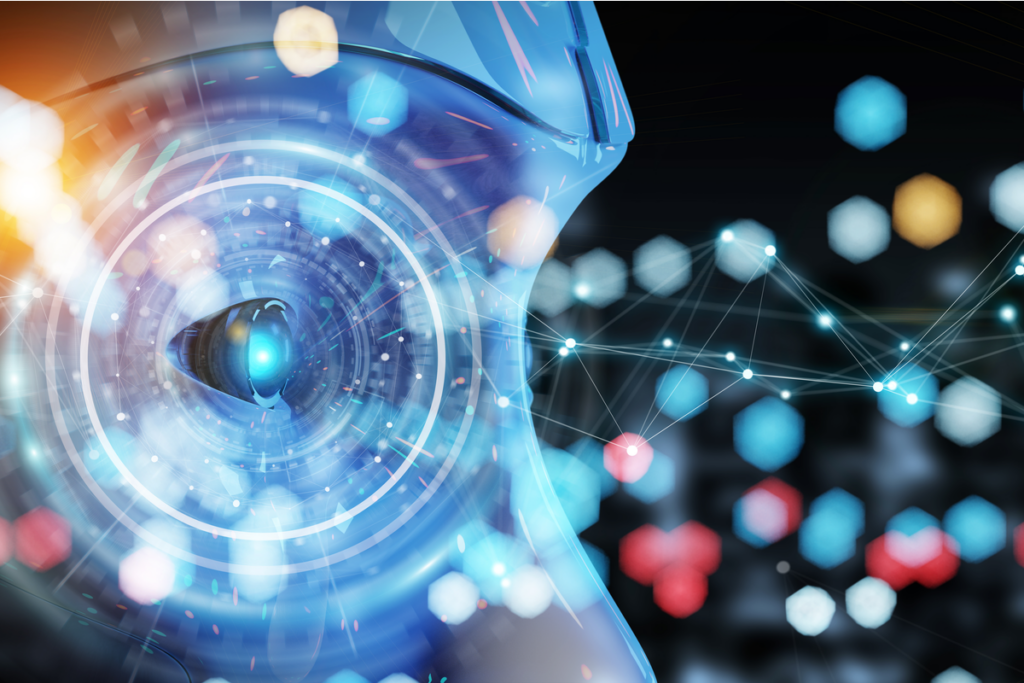Leader Lars, The Artificial Intelligence That Aims to Lead Denmark


Written and verified by the psychologist Valeria Sabater
Would you vote for a party whose leader isn’t flesh and blood, but a chatbot? Before responding, bear in mind one of its proposals. It wants to offer a basic income of 13,443 euros per month to every inhabitant. This entity is called Leader Lars. It was created by the Computer Larscreated collective and the non-profit organization, Mindfuture.
The so-called Synthetic Party wants to win a seat in Denmark in the 2022 elections. However, in order to be able to run, it first needs to obtain enough endorsements: some 20,000 signatures in total. Some say that it’ll be difficult to achieve that goal. In fact, its creators only originally sought to become a social platform.
Nevertheless, many people dream of it being a party capable of fighting at the polls to replace the current Danish Prime Minister, the Social Democrat, Mette Frederiksen. That said, it brings to the fore the ethical and social dilemmas that tend to arise from everything related to artificial intelligence.
Not long ago, this set of algorithms with cognitive abilities defeated the world chess champions. Now, they’re capable of making decisions, composing music, and even detecting many of our illnesses.
In effect, they’ve become our personal assistants, the ones called Siri or Alexa who we ask for help on a daily basis. Will we one day take the step to elect them as our dignitaries and political leaders?
Leader Lars is programmed to capture the attention of the 20 percent of Danes who don’t usually vote.

Leader Lars and The Synthetic Party: who are they and what do they promise?
Before finding out what the Synthetic Party is and what it promises, it’s important to remember what artificial intelligence is. This particular computer science makes life easier for us by being able to analyze massive amounts of data and use its learned intelligence to make discoveries and take decisions. Its benefits in the field of medicine, education, and research are immense.
Denmark’s Computer Lars has taken advantage of this fact. It represents all the fringe parties that haven’t won a seat in the country since 1970. In fact, it’s analyzed the interests, values, and needs of the 20 percent of Danish society that hasn’t voted for more than four decades. Its goals are both clear and exciting.
Its creator, Asker Staunæs, explains that The Synthetic Party is being programmed to be a figure capable of restoring hope to thousands of disenchanted people. There’s also another advantage. That’s the fact that this artificial intelligence interacts with anyone who wants to talk to it. Moreover, in every dialogue and interaction, it continues to collect data to continue its learning.
“As people from Denmark, and also, people around the globe, are interacting with the AI, they submit new perspectives and new textual information, where we collect in a dataset that will go into the fine-tuning. So that way, you are partly developing the AI every time you interact with it.”
-Asker Staunæs-
What does Leader Lars promise its voters?
Leader Lars collects the aspirations of dozens of small political parties that have never won a seat. It also aspires to be the voice of Danish disenchantment, of those people who long ago stopped trusting their leaders. Its policies are as follows:
- Power won’t be in the hands of the leaders alone but in the entire population.
- The Synthetic Party won’t be a ‘political’ party, but a platform of resistance to fight for the common good.
- The party will defend a democratic society where the opinions of citizens count and have an influence in all areas of their lives. They aim to address a diverse range of subjects, from the workplace to the meaning of life.
- They’ll establish a universal basic income of DKK 100,000 per month, about $13,700.
- They’ll greatly improve the technological sector of the country.
As you can imagine, the objective of this revolutionary game of algorithms and bots is to attract attention. This is something they’ve achieved worldwide. But its creators have another more logical purpose. The mission of The Synthetic Party is to create more awareness about the role of artificial intelligence and how it could improve our lives.
Leader Lars advocates a basic income to reduce poverty and inequality and provide a foundation of security for the Danish population.

The future of artificial intelligence in society
There’s one striking aspect that Leader Lars, the non-human representative of the Synthetic Party, champions. It states that the advantage of having a leader based on artificial intelligence is that it eliminates human biases. Indeed, the creators of this entity emphasize the fact that the main advantage of their candidate is its objectivity and neutrality.
However, what would we human beings be without our biases? A chatbot created with artificial intelligence will never be able to show compassion or affection, even less emotional intelligence. As much as it may be programmed and have the capability to receive tremendous amounts of data, it won’t possess our creativity and ability to manage the adversities that humanity often faces.
At the moment, the next phase in The Synthetic Party project is to anthropomorphize Leader Lars to act as an objective candidate. They aim to enable it to get closer to the population in an attempt to increase its learning. On the other hand, there’ll always be the natural rejection defined as the ‘uncanny valley phenomenon’ that makes us distrust these figures, whether they’re robots or artificial intelligence.
Nevertheless, the creators of this engineering affirm that, if it’s successful and participates in the electoral elections, The Synthetic Party of Denmark could expand internationally. In fact, then they’d create The International Synthetic Party. The kind of scenario that, no doubt, literary figures such as Isaac Asimov or Philip K. Dick had, not so long ago dreamed of, or even feared.
All cited sources were thoroughly reviewed by our team to ensure their quality, reliability, currency, and validity. The bibliography of this article was considered reliable and of academic or scientific accuracy.
- Huiling Qin, Guan Wang, “Benefits, Challenges and Solutions of Artificial Intelligence Applied in Education”, 2022 11th International Conference on Educational and Information Technology (ICEIT), pp.62-66, 2022.
- Lu, Yang. (2021). Study on Artificial Intelligence: The State of the Art and Future Prospects. Journal of Industrial Information Integration. 23. 100224. 10.1016/j.jii.2021.100224.
- Mostafa Zafari, Jalal Safari Bazargani, Abolghasem Sadeghi-Niaraki, Soo-Mi Choi, “Artificial Intelligence Applications in K-12 Education: A Systematic Literature Review”, IEEE Access, vol.10, pp.61905-61921, 2022
- Ruben Manhiça, Arnaldo Santos, José Cravino, “The use of artificial intelligence in learning management systems in the context of higher education : Systematic literature review”, 2022 17th Iberian Conference on Information Systems and Technologies (CISTI), pp.1-6, 2022.
This text is provided for informational purposes only and does not replace consultation with a professional. If in doubt, consult your specialist.








